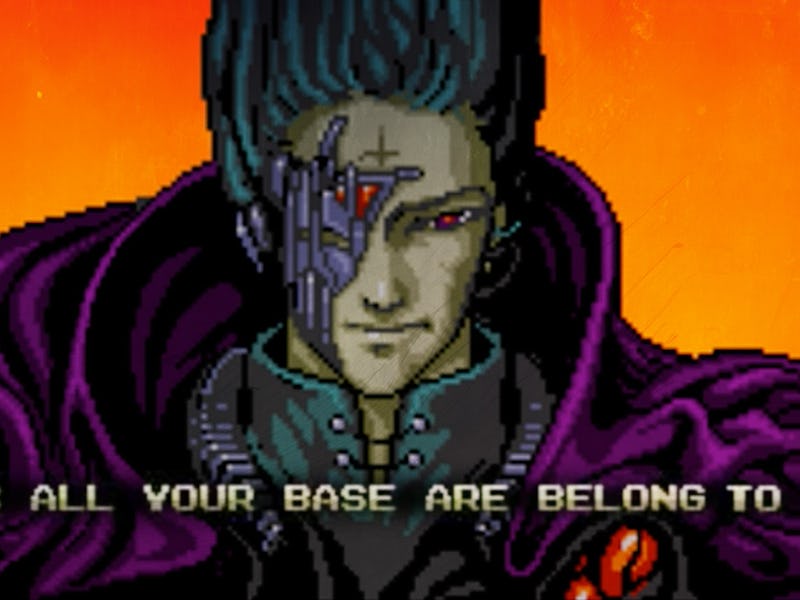ChatGPT’s Next Act: Generating Infinite Video Game Dialogue
We have the technology. No more NPC doldrums.

I’ve got a date. Her name is Takumi, and we met in class. She’s really quite lovely! Her interests include ramen, basketball, anime, and presumably — as an assemblage of pixels powered by OpenAI’s sophisticated ChatGPT language model — computer science.
I guess — to backtrack for a moment — I didn’t quite meet Takumi, as much as I conceptualized meeting her. Takumi is a product of an amateur dating sim made by an enthusiast of everyone’s favorite new chatbot: ChatGPT. But whether we actually “met” or not is irrelevant because, in practice, the process was pretty much the same. We had a “conversation.”
A screenshot of an amateur dating sim that uses ChatGPT to generate dialogue.
Thanks to ChatGPT, Takumi and I “talked” like I might with any other NPC in a dating sim, but with one major difference; very few of our exchanges were actually deterministic. Instead of choose-your-own-adventuring through a dialogue tree, the ChatGPT-powered dating sim allowed me to truly input unique questions and receive unique responses. No multiple choice; very few canned prompts; and perceptually very few guardrails.
In some ways, talking to Takumi is just like any other dating sim. In others, it’s nothing short of a revolution waiting to happen.
ChatGPT all the way down
You may have noticed ChatGPT is finding its way into everything — perhaps even a few places it’s not necessarily needed. Among the new adopters of ChatGPT are Slack, Discord, Snapchat, and even Coca-Cola. Those use cases may not exactly upend the way we work or communicate, but there is one arena (outside of search giants like Bing) where technology like ChatGPT could be exactly as pivotal as giants like Microsoft have led us to believe: games.
While a conversational AI has obvious applications to dating sims — even one as rudimentary as the aforementioned entry by u/RadicalDreamah — it’s not difficult to imagine how the same boundless approach to game dialogue could fit into more elaborate titles; games of consequence. Take open-world games, for example — a genre that often relies on the whimsy of discoverability and the controlled entropy of exploration to create an immersive experience.
Don’t get me wrong, games like Rockstar’s Red Dead Redemption or Obsidian’s The Outer Worlds already do an amazing job of making NPCs feel human enough, and pre-conceived dialogue is an art unto itself. But what about the rest of the time? What about the NPCs that don’t get their own treatment? I’m talking about guy wobbling out of the saloon #6. What’s his deal?
What is storytelling, after all, without a little bit of the unexpected?
If exploration is the goal, we have the technology to give open-world games the boundless feel developers have been inching towards for decades. Combine that exploration with an in-game mechanic — one that incentivizes players to go down the dialogue rabbit hole like item discovery — and you’ve got yourself a Brave New World of NPCs.
I’m not saying we should do away with pre-written story-based dialogue — as someone with skin in the game (read: a writer/editor who makes money off of words) I’m a firm believer that humans, not robots, are still far and away the best storytellers on the planet. But a balance could be struck.
Titles like No Man’s Sky, which rely on near-infinite possibilities of worlds to explore, have already shown us that discovery — taken to its extreme — can be a rewarding experience. Why shouldn’t dialogue come along for the ride?
Give us a world where NPCs aren’t dialogue trees (or shrubs, more accurately) to be pruned from existence, but instead worlds unto themselves. What is storytelling, after all, without a little bit of the unexpected?
All your bases are belong to AI
It’s hard to argue with priceless pieces of dialogue like this.
The testing grounds are already drawn up. People interested in applying ChatGPT to games have trained their sites on the generative aspect of OpenAI’s technology, tasking it with inventing word and puzzle games that mimic Sudoku or Wordle. The results are... fine! In the biography of ChatGPT’s existence, we’re still in chapter one.
But that’s the thing about nascent technologies: you don’t always know what they can do until you try to do it. Maybe generating entire games isn’t the answer, but generating aspects of them is. I’m not the first Inverse writer to welcome the flood of chatbots to our fad-obsessed world of consumer technology, but the point still stands: ChatGPT, and the tech it has (or will) inspire, are coming whether we like it or not.
I’m no fool. It won’t all be sunshine and GOTY awards; introducing a technology like ChatGPT to games has the same downsides as introducing it to other apps or platforms. Maybe it will be evil; maybe it will be too conservative; maybe it’ll just be flat-out annoying. The only common thread is that it will be something.
And if we’re resigning ourselves to that world — one of chatbot ubiquity — the only way to figure out how that world looks is through conversation. Just me, you, and the chatbot — one NPC at a time.
This article was originally published on